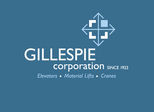- Glenn Siegel
- Feb 17, 2020
One of the most remarkable things about the musicians we work with is the sheer number of miles travelled in service of their art. Part of the reason they traverse the globe is because the market for creative music is small and dispersed. If a musician could make a decent living performing exclusively near their home town, there would be less imperative to deal with airports, time changes, onerous visa policies, carbon footprints, and wear and tear.
But the flip side means we here in rural western Massachusetts get the opportunity to hear international artists ply their craft. Such was the case on Monday, February 10, when Japanese pianist Satoko Fujii joined with bassist Joe Fonda and trumpeter Natsuki Tamura to deliver a 90-minute master class on improvisation. The concert at the Northampton Center for the Arts marked the half-way point of season eight of Pioneer Valley Jazz Shares.
The first two-thirds of the evening featured Fujii and Fonda exploring multiple moods and sonorities. Their playing ranged from loud to soft and mellifluent to discordant. They produced sounds conventionally and unconventionally. Fujii pulled what looked like a guitar string against strings inside the piano to produce eerie sounds that were echoed by Fonda’s arco bass playing.
The level of simpatico between the two was remarkable. I felt slightly voyeuristic, as if listening in on an intimate conversation between two accomplished musicians playing without ego, with nothing to prove, just an interest in engaged exchange. As he readied to reenter after a solo piano interlude, Fonda pulled out his bow, listened, smiled, then put it away without playing a note. Nothing more needed to be said.
Fujii is a diminutive powerhouse of a pianist. She came through the Valley in 2011 and 2012, performing as part of the Northampton Center for the Arts’ A World of Piano solo piano series, and then in duet performances with her husband, Tamura, and violinist Carla Kihlstedt as part of the UMass Solos & Duos Series. In 2018, in celebration of her 60th birthday, a milestone known as Kanreki in Japan, she produced one recording a month for a year.
One of them, Mizu, was a duo with Joe Fonda. Their latest, 4, is, as the title implies, their fourth together. Within five short years the two have developed a natural telepathy, anticipating each other’s direction and exploring a full range of jazz expression.
Joe Fonda lived in the Pioneer Valley for about a decade starting in the mid-1970’s and has been a regular visitor since. As I remarked to a friend after the concert, I have never heard him give a less than inspired performance; he lifts every bandstand he’s on. His body language, facial expressions and the sounds he produces are genuine manifestations of a blithe musical spirit.
During the concert, played without pause or applause, Fonda delivered a semesters-worth of bass lessons. His liberal use of arco playing worked especially well in this context, providing a plaintive vocal quality that upped the emotional ante. At times his pizzicato playing was so quiet, and so clearly articulated he sounded alone in the room.
About an hour in, a new, beautiful strand of sound emerged. Looking back and forth from Fujii to Fonda to try to identify the source, we realized a third voice had joined the fray. After a few minutes, Tamura ambled out from behind the black baffle and joined the duo on stage. The fact that we could not identify the mysterious sound as trumpet-based is not surprising. Along with Peter Evans, Nate Wooley, Axel Dörner and a few others, Tamura has revolutionized sound production on his instrument. His duet with Fonda on flute (sans mouthpiece) was a study in innovation.
Joe Fonda will be back in May with the Michael Musillami Trio +2 and again next year with Marilyn Crispell’s Trio. We might have to wait longer for Fujii and Tamura to circle back. By that time, they will have played countless concerts, made many more recordings, and logged thousands of miles on multiple continents.



























